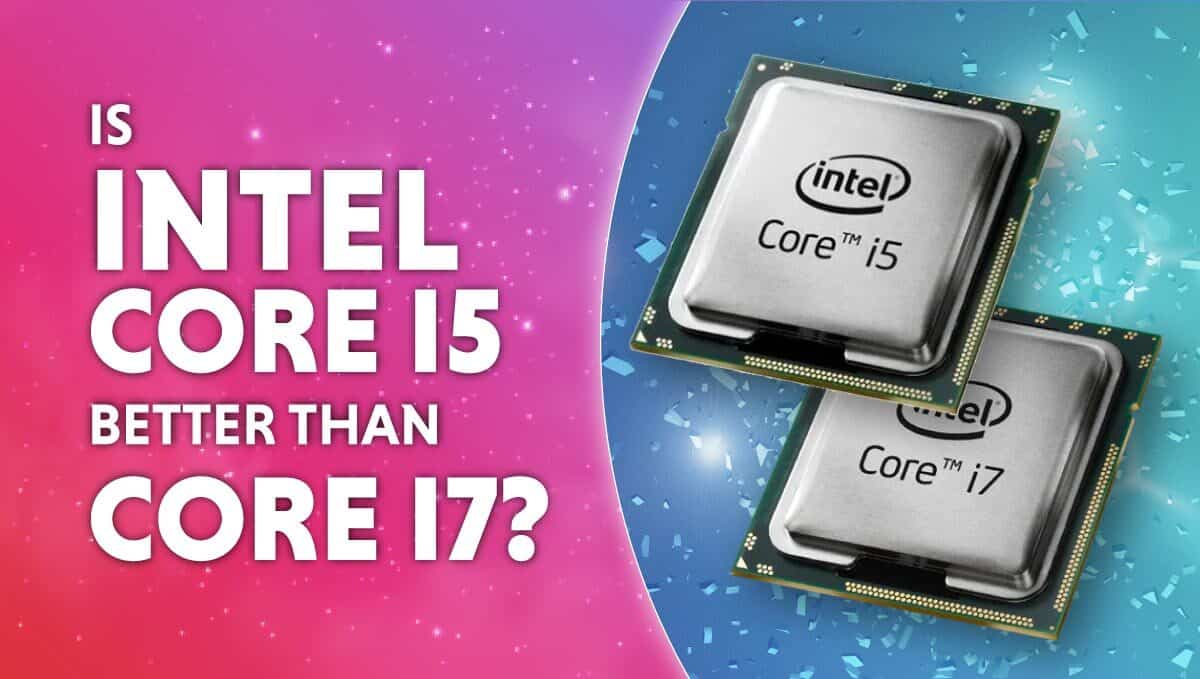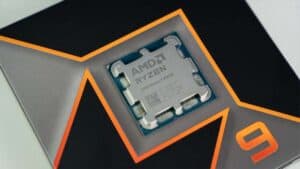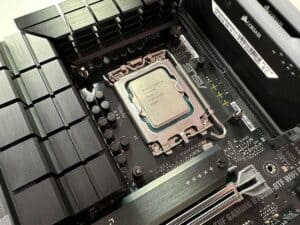Is Intel i5 better than i7?
Is Intel i5 better than i7? Let's find out.

WePC is reader-supported. When you buy through links on our site, we may earn an affiliate commission. Prices subject to change. Learn more
The Intel Core i5 processor series consists of Intel’s mid-range CPU offering. The Core i7 series, on the other hand, has more advanced specs and is generally considered to feature high-end processors.
Now Read: Is 13 better than i5
Today, we’ll compare both CPU series to determine which is better. To help you get a better understanding of the advantages and disadvantages of both CPU families.
So, let’s start: Is the Intel Core i5 better than the Core i7?
Comparing the Intel i5 and i7
We’ll compare the i5 and i7 in several categories.
Single-core performance
Both i5 and i7 processors typically have very respectable single-core performance. While the i7 processors do inch out ahead in this category, the difference isn’t huge.
For example, the recent i7-13700K has a 5.4GHz boost clock. The i5-13600K, on the other hand, has a 5.1GHz boost clock. That’s a 300MHz difference that will be felt in CPU-bound scenarios such as gaming.
However, once a processor is in the 5GHz+ clock speed territory, differences in core clock such as the one above tend to be less influential to performance, practically speaking.
Overall, i7 wins in this category, but by a low margin. The i5 and the i7 offer similar gaming performance nowadays since systems tend always to be GPU-bound.
In the rare event that a system ends up CPU-bound in a game, the i7 will offer a higher framerate.
Multicore performance
Core i7 wins this category fair and square. That’s simply because all i7 processors have more physical cores and threads than their i5 counterparts.
The Raptor Lake i5 and i7 come oddly close in the number of threads they have. Intel gave i5 a huge upgrade in terms of core count with the release of Raptor Lake.
The i5-13600K has 14 cores and 20 threads, whereas the i7-13700K has 16 cores and 24 threads. The extra 4 threads are felt in multi-core intensive workloads, such as content creation, streaming, and productivity work.
Power usage
Since i5 processors have fewer cores and lower clock speeds, they naturally also use up less power. While i7 processors use up more power, they also deliver more performance.
Ultimately, i5 processors tend to be somewhat more power-efficient than i7 processors.
As a processor improves in performance and specs, it has to compromise on power efficiency. We see that happening here with the i7.
Thermals
Because i7 processors need more power, they also tend to need a stronger cooling solution. With an i5 processor, you may be able to get along fine with the stock cooler.
However, it would be best to purchase a stronger aftermarket cooler with an i7 to prevent it from overheating and throttling or incurring damage.
Is Intel i5 better than i7?
In terms of raw performance, no. The Intel i5 is not better than the i7. Core i7 simply has more cores with higher clock speeds, and the i5 has no way to overcome this physical difference.
However, the i5 does come out ahead in power efficiency and thermals. Additionally, i5 CPUs tend to be much more affordable and feature a better price-to-performance ratio. You can find a 13400F retailing for about $200.
The i7-13700 of the same generation would cost you approximately twice that, but it won’t deliver twice the performance.
If you’re a gamer looking to get the most bang for your buck, you will likely find the i5 series more suitable. If you’re a streamer or content creator, you will benefit in productivity from the extra multicore performance offered by the i7 processors.











